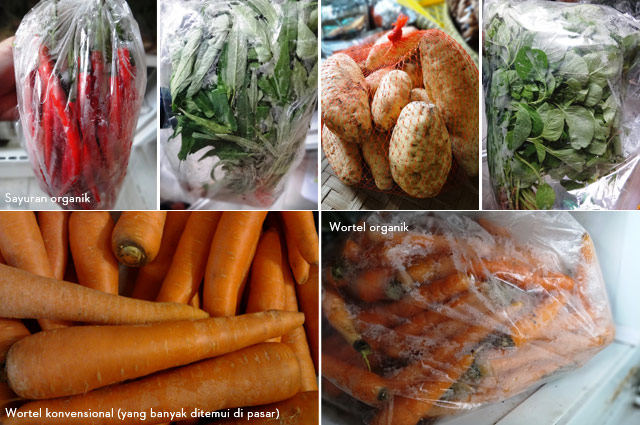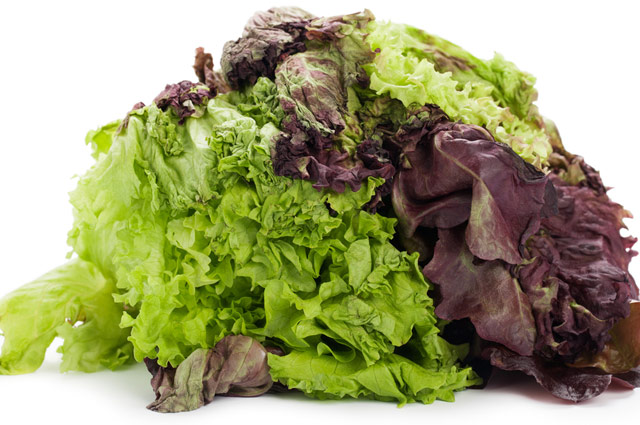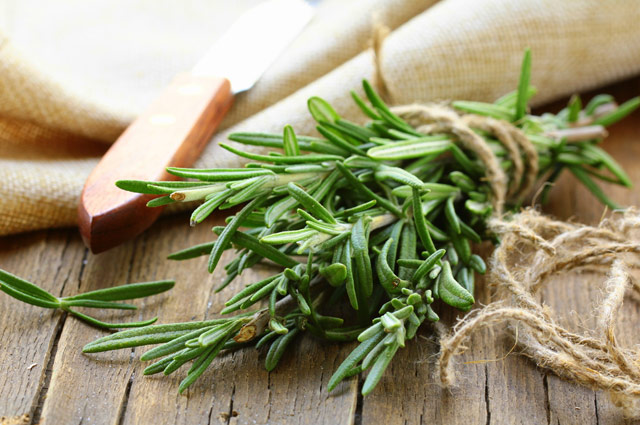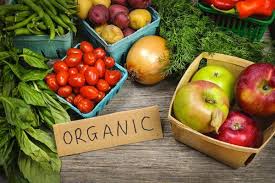Healthy Living: Characteristics of Truly Organic Vegetables. Don’t Get Fooled by Labels!
The masses are starting to get health-conscious these days. With information on healthy living scattered all over the Internet and easily obtained plus ever-increasing pressures of living in the city have pushed people to adapt a healthier lifestyle. Buying and consuming everything organic is just one of the many fads they’re adopting. But are they really consuming organic stuff?
Healthy living is all the rage in the major cities right now. Just look at Gelora Bung Karno every night. Not only on the weekends, now young executives have added an after-work night run at Gelora Bung Karno as part of their routine. Not only that, organic food is now the hottest commodity in town. With a lot of products specifically targeted for this newly health-conscious market group, the organic label is now being thrown at almost everything on the market. But how can you really know if those organic vegetables are in fact organic?

Turns out, you can truly differentiate organically grown vegetables with its non-organic counterpart just by the looks of them alon, and you don’t even need to be an expert to do that. “There’s definitely a difference between organically grown vegetables and those who aren’t organic. Just take carrots for example, organic carrots are usually smaller and have a paler orange color to them. Why? Because organically grown vegetables are all natural, there’s no human intervention during their growth, no help from chemicals at all. Not just carrots, other organic vegetables are smaller and have less vivid coloring in general,” said Nectaria Ayu, the owner of Rumah Sehat Intiyana.

Vegetables are obviously a necessity in our life, even more if you’re trying to adopt a healthier lifestyle. Due to this, people tend to hoard vegetables on their fridge for days or even weeks. If you really want to start swapping to organic produce instead, hoarding vegetables for long period of time is no longer an option! Why is that? It’s because organically grown vegetables wilt faster. Their shelf or fridge life is no longer than 3 days at most. “Yes, organic vegetables are more high-maintenance than the usual produce we find on the market. They don’t last as long, because the usual produce has a lot of chemicals in that helps them stay fresh longer,” explained Nectar. They’re so delicate that Nectar suggested storing them with care. Stacking them with other vegetables in a tight space on the fridge will make them wilt faster.

Speaking of growing produce, it’s impossible to totally avoid pests. But even without chemicals, organically grown vegetables can actually fend themselves off of unwanted pest. How is that possible? Turns out aromatic plants are a natural pesticide! Basil and rosemary are the two examples of the aforementioned aromatic plants. Planting vegetables with these aromatic plants will help get the pests away from the veggies since it would prefer to flock to the aromatic greens instead. These aromatic plants are just as good to chemical pesticides when it comes to pest control!
Nectar said that her healthy living business is a hit among mothers who want organic produce for their kids. “Most of my customer are expats, not a lot of Indonesian comes here. Usually it’s mothers who are concerned about what their kids are consuming and only want the best for them. Not only kids need healthier options, though, we adults need them just as much,” said Nectar.
Chemical pesticides generally used in commercial farming are bad for our health. A study published in the journal of Environmental Health Perspective on 2011 showed that children exposed to pesticides ever since they’re still in the womb have lower IQ than those that were not exposed. There’s currently no study on the nutritional contents of organically grown produces, whether they actually have higher nutritional contents than the commercial ones. But reducing our exposure to chemical pesticides that are proven to be bad for our health is a sufficient enough reason to opt for organic produces, wouldn’t you agree?
Originally published on Fimela.com. Translated and edited by Gold's Gym Indonesia.
Gold's Gym Mall Ciputra | Gold's Gym Mall of Indonesia | Gold's Gym Thamrin City | Gold's Gym Cilandak Town Square | Gold's Gym Baywalk Mall Pluit | Gold's Gym Kalibata City Mall | Gold's Gym Braga Citywalk | Gold's Gym Cihampelas Walk | Gold's Gym Summarecon Mall Serpong | Gold's Gym Mall @ Alam Sutera | Gold's Gym Bintaro X-change | Gold's Gym The Breeze BSD | Gold's Gym Grand City Surabaya | Gold's Gym Surabaya Town Square | Gold's Gym Grand Metropolitan Bekasi




